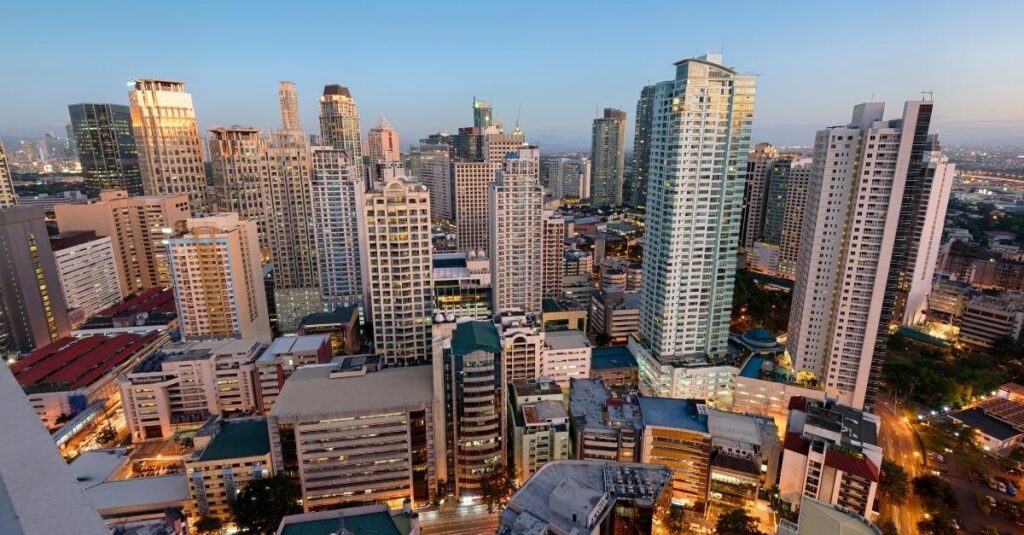In 1992, the Philippines became home to the world’s first contact center dedicated to business process outsourcing (BPO). The government of the Philippines saw an opportunity and created a special economic zone to facilitate outsourcing in order to attract more foreign companies to set up customer support centers there.
Hundreds more outsourcing firms have set up shops in the Philippines since then. Over 1.4 million people are currently working in the business process outsourcing (BPO) sector.
Gross sales for the three largest outsourcing firms in the Philippines in 2012 were P28.104 billion for Accenture, P17.281 billion for Convergys, and P10.80 billion for JPMorgan. The Philippines has emerged as a major outsourcing hub, along with India. The BPO industry is the fastest-growing sector of the economy, growing at a rate of 15-18% annually (11 percent GDP).

It’s no secret that the Philippines’ outsourcing sector has thrived thanks to the country’s many incentives for foreign investors. Find out why the Philippines is the ideal location for your company to outsource its processes:
1. Cost-effectiveness
Savings of 60% to 80% on operational costs are possible when companies hire contractors in the Philippines. This is a result of the country’s relatively low cost of living.
Graduates in the Philippines make a pittance compared to their Western counterparts. Professionals in the Philippines may earn less per day than their European or American counterparts earn per hour.
2. Cultural mix
Evidence of the Spanish, American, and Japanese colonial periods persists in the Philippines. Philippine society continues to incorporate Western cultural norms, and its citizens continue to demonstrate remarkable cultural flexibility.
Furthermore, hospitality is highly valued in Filipino society. For these reasons, working with and interacting with Filipinos is a pleasant experience.
3. Fluency in English
Somewhere in the neighborhood of 70% of Filipinos can speak English comfortably. Most kids around here pick it up long before they start school. After enrolling in a formal school, they find that their already-strong command of English improves even further. Since English is the language of international trade and the predominant language in the Philippines, it is also the language of instruction in the country’s public schools.

4. Skilled workforce
There are more young people in the Philippines now than there are children and retirees who are dependent on the country’s economy. The median age of this group is only 23. In addition to producing a large pool of available workers, these numbers indicate a highly educated populace with a literacy rate of 97.5 percent.
To the already substantial supply of qualified locals, local universities and colleges annually add another half a million or more. Authorities predict that the Philippines will continue to prosper thanks to its young and skilled workforce.
5. Flexible workforce
If you want to expand quickly and efficiently without spending a lot of money or putting in a lot of effort, consider establishing an offshore team in the Philippines.
Adding members to a team is a simple and inexpensive process. Likewise, you can reduce your workforce again if seasonal work or a decline in business requires it. Contracts with outsourcing vendors can typically be negotiated with minimal commitments and liberal terms.
6. Data Security/Privacy
For 30 years, the Philippines has been a popular option for companies looking to outsource work. In that time, it has established a highly developed call center industry and a supportive regulatory framework.
For more than two decades, the outsourcing industry in the Philippines has handled sensitive client data. For some of the largest public and private companies in the world, the Philippine outsourcing industry handles everything from health insurance and medical records to personal financial data.
The Philippines has one of the world’s strictest data privacy acts and can provide any kind of compliant environment and work system (modeled on the European GDPR).
7. Strong economic growth
The KPMG Philippine Consumer Market Report for 2017 reveals that Filipinos have more disposable income than ever before. A business climate that encourages expansion and innovation is attractive to foreign investors.

8. Government support
The Philippine government recognizes the importance of the business process outsourcing (BPO) industry to the country’s economy and provides substantial support for the sector through regulations and incentives. The Philippine Economic Zone Authority (PEZA) and special economic zones were created by the Philippine government to provide just such incentives (SEZ).
The income tax holiday (both for 4 and 8 years) is just one example of the financial and non-financial benefits that these policies offer. The local government also showed how committed it is to the BPO industry by bringing up the Philippine IT-BPM Roadmap 2022. This is a program that aims to create an extra 1.8 million jobs for Filipinos and bring in an extra $40 billion by the year 2022.
The Philippines: The Most Ideal Outsourcing Destination
For this reason, it is crucial for business owners to find an offshore partner like ADDMORE Outsourcing who can meet their specific requirements as they expand. ADDMORE Outsourcing works hard to stay on top of the latest developments in the outsourcing industry across all of its service areas, from customer service and digital marketing to accounting. While you focus on expanding your business, we’ll use our many channels to help you reach your full potential.
Take full advantage of the boundless possibilities presented by outsourcing to the Philippines. Get in touch with us right away to arrange your no-cost initial consultation.
